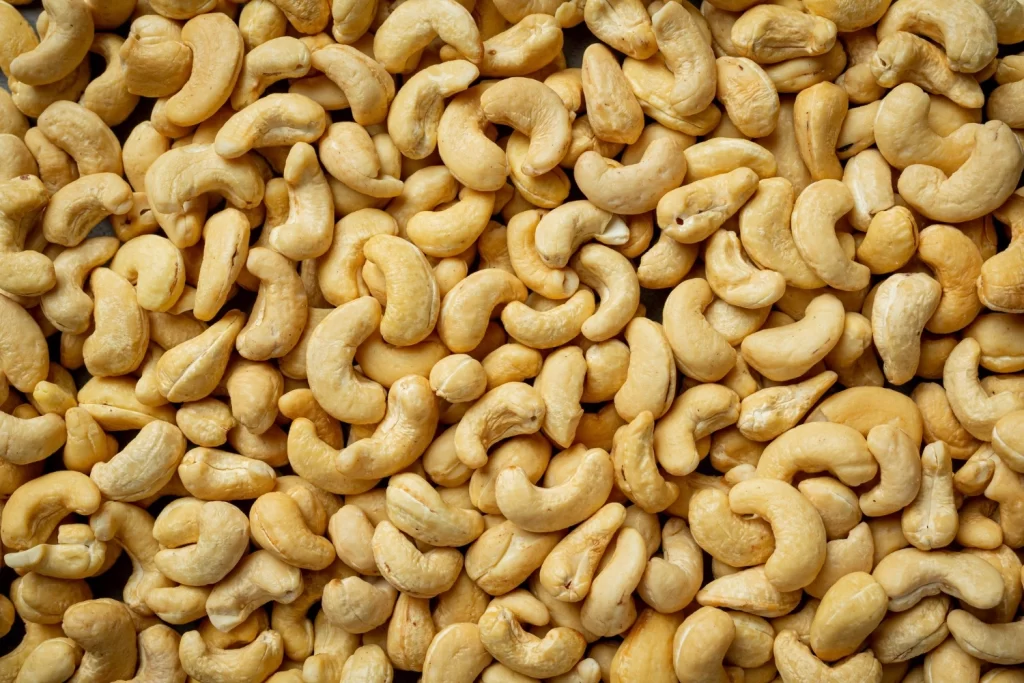The savory taste of cashews make people choose this nut for their daily snacks. In addition to its taste, cashews are rich in nutrients and are beneficial for health. What are the benefits of cashew for health? And what nutrients inside cashews make it special and worth it?
What is Cashew?
Cashews are nuts that come from the cashew tree. The edible part is the seeds.
Monkey cashew or cashew (Anacardium occidentale) is a fruit plant originating from Southeastern Brazil. It is from this cashew fruit that a fruit known as cashew is found.
Botanically, the cashew does not belong to the Myrtaceae family or the cashew or legume tribe (Fabaceae). But it is more related to the Anacardiaceae family or the mango.
Nutrients in Cashew
Cashews come from the cashew tree. The edible part is the seeds.
Per 100 grams of cashew, there are a number of nutrients, including:
- Calories: 616 kcal
- Protein: 16.3 grams
- Fat: 48.4 grams
- Carbs: 28.7 grams
- Fiber: 0.9 grams
- Calcium: 26 milligrams
- Phosphorus: 521 milligrams
- Iron: 3.8 milligrams
- Sodium: 26 milligrams
- Potassium: 692 milligrams
- Copper: 4.7 milligrams
- Zinc: 4.1 milligrams
- Beta carotene: 5 micrograms
- Thiamin (Vit. B1): 0.64 milligrams
- Riboflavin (Vit B2): 0.03 milligrams
- Niacin (Vit. B3): 0.0 milligrams
Cashews are very rich in unsaturated fats which have been linked to lowering the risk of heart disease.
Cashews are also low in sugar, rich in fiber, and contain nearly the same amount of protein as the equivalent amount of cooked meat.
Health Benefits of Cashew
Cashews are often found in chocolate bars as filling, used as an additional ingredient in pastries, or roasted to be eaten as a snack. Cashews provide the following benefits:
1. Helps Losing Weight
Recent research shows that the human body can only digest and absorb about 84% of the total calories in cashews.
This happens because some of the fat in cashew nuts remains trapped in the fibrous walls of cashew rather than being absorbed during the digestive process.
Even though the total calorie is lower, cashew are not recommended for consumption in a raw state because they contain a toxic compound called uroshiol and are known to be harmful to health.
As a solution, you can consume processed cashew nuts.
The protein and fiber content in cashew nuts can help us feel full longer which has the potential to help lose or maintain weight when consumed in appropriate portions.
2. Beneficial for Heart Health
Research shows cashews are beneficial for heart health. Cashew nuts contain mono and polyunsaturated fatty acids.
The content of both can help lower bad cholesterol and triglyceride levels in the blood. Relatively low levels of bad cholesterol and triglycerides can reduce the risk of cardiovascular disease, stroke, and heart attack.
The content of other vitamins and minerals in cashews, such as potassium, vitamin E, vitamin B6, and folic acid, can also help the body fight heart disease.
3. Beneficial for Bone Health
Cashew nuts contain large amounts of calcium. 100 grams of cashews contain about 26 mg of calcium.
This makes cashew nuts a recommended food for maintaining bone strength and health.
Choose The Best Cashew Nuts to Get The Benefits!
Cashews are rich in fiber, protein, and healthy fats. Cashews also contain various vitamins, minerals, and plant compounds beneficial for health.
Similarly to nuts, cashews can promote weight loss, and control blood sugar, and heart health.
Even so, keep an eye on the portions and choose the best quality cashews without added salt, sugar, or other additives to get whole benefits.









































